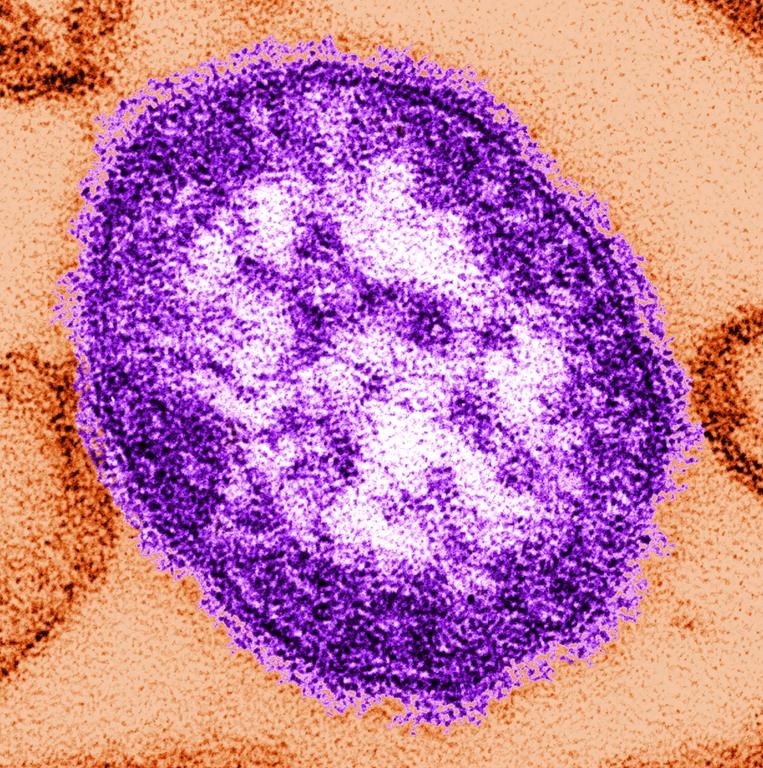Preventable outbreak that threatens lives
Advertisement
Read this article for free:
or
Already have an account? Log in here »
We need your support!
Local journalism needs your support!
As we navigate through unprecedented times, our journalists are working harder than ever to bring you the latest local updates to keep you safe and informed.
Now, more than ever, we need your support.
Starting at $15.99 plus taxes every four weeks you can access your Brandon Sun online and full access to all content as it appears on our website.
Subscribe Nowor call circulation directly at (204) 727-0527.
Your pledge helps to ensure we provide the news that matters most to your community!
To continue reading, please subscribe:
Add Brandon Sun access to your Free Press subscription for only an additional
$1 for the first 4 weeks*
*Your next subscription payment will increase by $1.00 and you will be charged $20.00 plus GST for four weeks. After four weeks, your payment will increase to $24.00 plus GST every four weeks.
Read unlimited articles for free today:
or
Already have an account? Log in here »
Hey there, time traveller!
This article was published 01/03/2025 (251 days ago), so information in it may no longer be current.
Earlier this week, the Manitoba government notified the public of five confirmed cases of measles in southern Manitoba, all of which are connected to an outbreak in Ontario. All five people live in the same household and had recently travelled to Ontario.
The province is warning people who may have attended a church in Winkler on Feb.16 and/or certain areas of the Health Sciences Centre in Winnipeg on Feb. 21 — including the children’s laboratory and areas of the Children’s Hospital — that they may have been exposed to the measles virus. It is asking those who may have been exposed to isolate themselves.
Measles is a highly infectious, communicable disease that is spread through droplets in the air when a person coughs or sneezes. It tends to be more severe for infants and young children, and can be life-threatening.

Given that dangerous reality, it is alarming that a disease as dangerous as measles — which had been declared eliminated in Canada in 1998 — has returned to our nation. As of Thursday, Ontario had identified 140 cases this year alone, including 18 children (so far) who have been hospitalized.
The startling number of cases in Ontario over the past two months vastly exceeds the 101 cases reported in that province between 2013 and 2023. Almost all of the new Ontario cases are connected to an interprovincial outbreak that has also impacted Quebec, Manitoba and New Brunswick, and most cases are travel-related.
Why is this happening? How is a disease that was thought to be eliminated almost 30 years ago making such a sudden comeback?
The answer to those questions should not be a surprise. A growing number of Canadians are at risk of being infected with the disease because fewer people are choosing to be vaccinated, and fewer parents are choosing to have their children vaccinated. Those choices dramatically increase the ability for a disease as contagious as measles to spread throughout the population, and the consequences can be deadly, especially for children and teenagers.
On Wednesday, it was reported that an unvaccinated child in rural West Texas had died of the disease — America’s first measles death in a decade. The child was one of more than 120 people who have been infected in that area, with the state health department saying that the cases are concentrated in a “close-knit, concentrated” religious community.
With a child having already died, and several others still at risk of death from the disease, it is difficult to understand why adults would not want to be vaccinated and why parents would wilfully expose their children to the risk of contracting measles.
After all, the measles, mumps and rubella vaccine has been repeatedly proven to be safe and effective, and many medical organizations have concluded that the vaccine is much safer than getting measles, mumps or rubella.
It is just as confusing as to why proof of vaccination against diseases such as measles is not mandatory for children attending school in Manitoba, as it would certainly reduce the risk of serious harm for those children and the adults who care for them.
The concern over lower vaccination rates and the increased risk of the public being exposed to dangerous diseases is not restricted to measles. On Tuesday, Dr. Brent Roussin, Manitoba’s chief provincial public health officer, urged the public to get their flu shot amid a surge in influenza cases that is currently unfolding across the province. That surge is putting the well-being of Manitobans, especially the weak and elderly, at risk.
Beyond worries over the late-season flu outbreak the province is experiencing, there also continues to be anxiety about other communicable diseases — including mpox, chickenpox, bird flu and COVID-19 — and the stress that an outbreak of any of those diseases could cause for our overburdened health-care system.
Much of that concern, and the risk of harm that the vulnerable living in our province are exposed to, can be avoided or reduced through higher vaccination rates.
If you or your children are not vaccinated for measles and other communicable illnesses for which there is a vaccine, please consider vaccination for yourself and your children. It’s safe, it’s effective and it saves lives.
